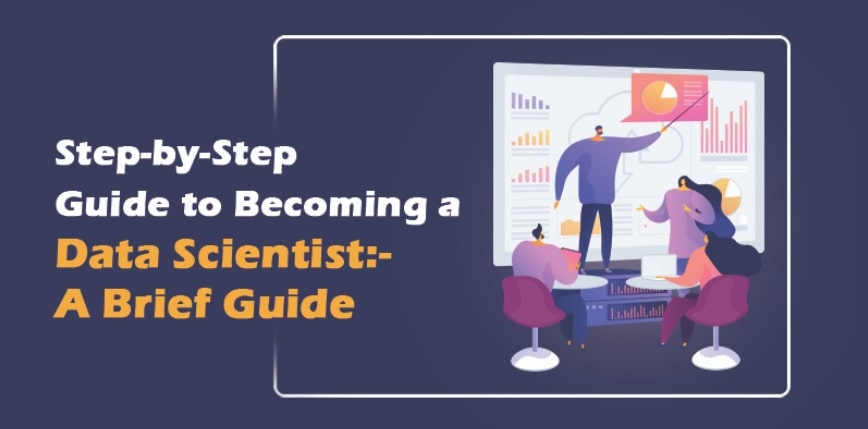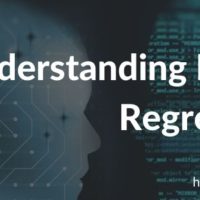
What is Data Science?
You might have heard a lot about Data Science, but what exactly is Data Science? It is a multi-disciplinary domain that combines math, statistics, and programming to analyze large amounts of datasets that may be structured or unstructured and extract insights to form actionable steps that could propel the growth of a business or organization forward.
Lately, Machine Learning and Artificial Intelligence are making strides in the Data Science domain, and it’s expected from qualified Data Scientists to have at least working knowledge of these domains to secure the future. So, Take up a Data Science Course to bag better opportunities.
Why is there a high demand for Data Scientists?
Data is the new oil. But no oil can propel a vehicle unless it’s processed, and then an engine burns it to produce energy. Data Scientists are the ones who are responsible for turning very large datasets into actionable insights that could be used to drive business. Lately, data is being produced at a massive rate.
All these data are a mixture of structured as well as unstructured data. Only qualified Data Scientists can extract quality, actionable insights from the large pool of datasets, which businesses can utilize to prepare business strategies, new business models, create plans, etc.
Skills that Data Scientists require
There are multiple skills that an aspirant must acquire to become a Data Scientist. I have outlined them all here:
Python:
The first step towards Data Science, you must learn a programming language. Regarding Data Science, you can choose between R and Python as the preferred language. But you can learn Python as it’s growing at a tremendous pace. New packages keep on adding, and there is a very supportive community behind Python that makes it one of the highly successful programming languages.
Why do programmers love Python? The answer is it’s simple, versatile, and comes pre-installed with powerful libraries that are used in the Data Science domain like NumPy, SciPy, Pandas, etc. On top of that, Python supports many packages, being an open-source language.
Statistics:
Statistics is the core of Data Science. Without Statistics, there is no Data Science. It’s like saying, Data Science is the language, and Statistics is its grammar. Statistics is considered to be the collection, processing, and interpretation of data that yields a specific pattern and answers many questions. Statistica helps us in understanding the hidden details in a large dataset.
Data Collection and Cleaning:
It is one of the most important steps in this domain. You need to have a good amount of knowledge in working with various tools used in Data Science. It means you need to be an expert in pulling data from various sources like local systems, websites, CSV files, etc. You must also know how to scrape data from websites using libraries.
Data Cleaning is the phase wherein you, being a Data Scientist, spend your maximum time. Data Cleaning is the process wherein you collect data, organize it, remove missing, unwanted, or fake values from the raw data, meaning stripping the unwanted or uncertain values from the raw data. It is an important step, and you have to achieve it using Python libraries like Pandas or NumPy, etc.
Exploratory Data Analysis (EDA)
EDA is essential to Data Science. In this process, datasets, data patterns, variables, and trends are analyzed to pull out or extract insights using graphical or statistical methods. It includes all Data analysis, manipulation, and visualization processes to identify patterns in which even ML algorithms could fail.
Machine Learning and Deep Learning
Machine Learning is slowly becoming a core skill that every Data Scientist requires. ML is used in the Data Science domain to build various models like classification models, predictive models, etc. These models are used by companies, firms, organizations, and many more to optimize their business planning, as recommended by the ML algorithms.
Deep Learning is a further subset of Machine Learning. It deploys the use of Neural Networks. Neural Networks is a framework that combines ML algorithms to solve various tasks and train data. There are many neural networks like CNN (Convolutional Neural Network), RNN (Recurrent Neural Network), etc.
ML model deployment
You must also know how to deploy ML models. Deploying ML models means making ML models available to end-users. You can do this by achieving integration of these models with existing production environments. You can deploy these ML models using many services like Flask, Microsoft Azure, Pythoneverywhere, MLOps, GCP, etc.
Real-world testing
Testing is an important part of the process of converting raw data to ML models and then deploying it. Testing and Validating becomes an important process to check the accuracy and effectiveness of the model. It’s necessary to keep a check over the ML model. There are many types of testing like A/B, AAB testing, etc.
Exploring and practicing datasets on various online platforms
There are many global-level communities for Data Science enthusiasts like Kaggle, which helps in getting Data Science aspirants connected. You can use these platforms to practice Data Analysis techniques, ML algorithms, participate in competitions, etc. Platforms like these help in sharpening Data Science skills, which accelerates the pace of our learning to become qualified Data Scientists. If you are starting in Data Science, learn from the Data Science Tutorial.
Host of non-technical skills
Data Science is a multidisciplinary field that requires much more than just technical skills. It requires you to have multiple technical skills along with a host of non-technical skills. These skills are:
Analytical skills:
Data Science is about exploring data (both structured and unstructured) to extract insights. To do all these, you require curiosity and strong analytical skills. Having strong analytical skills helps us in improving other skills which we require to become qualified Data Scientists.
Team Playing skills:
It is very important to deliver results, and that is only possible if you are a good team player.
Communication skills:
This skill helps us in communicating technical skills easily to non-technical professionals.
Task Management:
This skill helps us in properly planning and managing tasks to achieve the desired outcomes.
Domain/ Business understanding:
This is a very important skill that helps in quickly grasping the domain concepts, analyzing important solutions which cater to the domain specifically.

